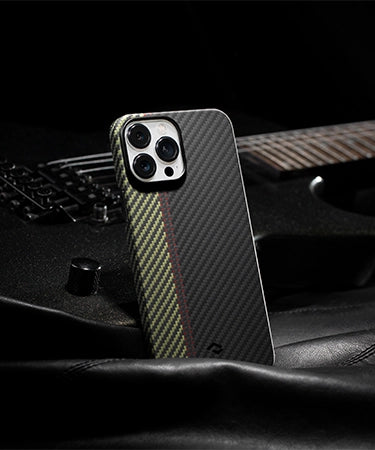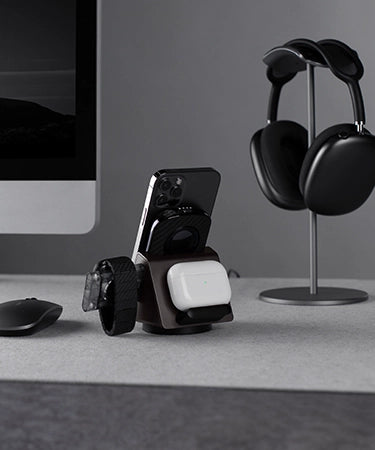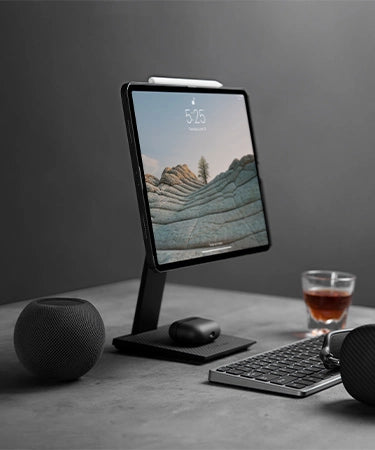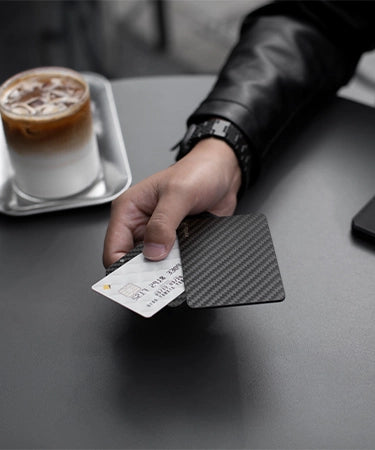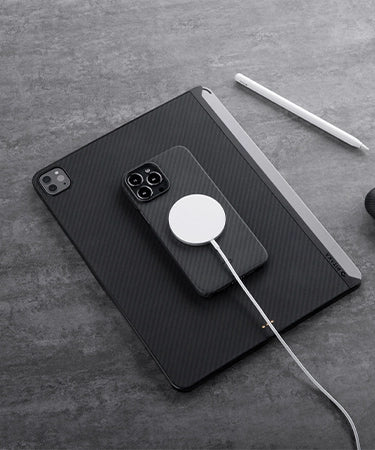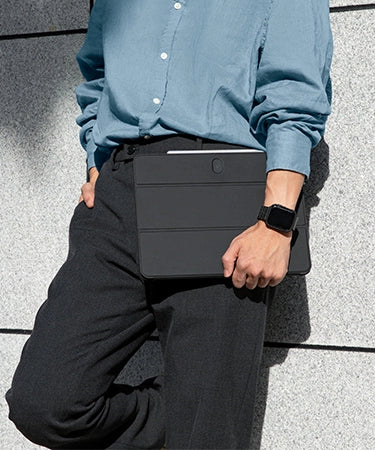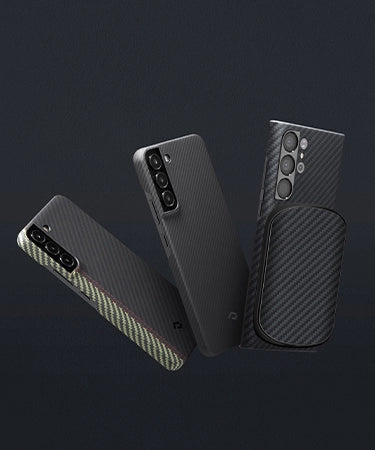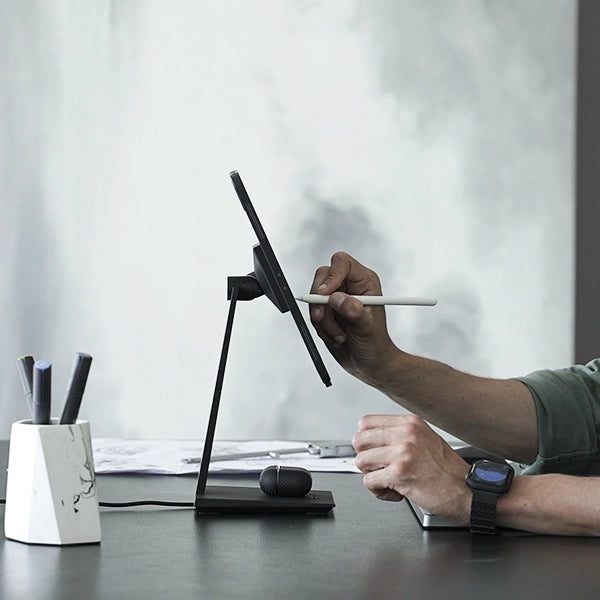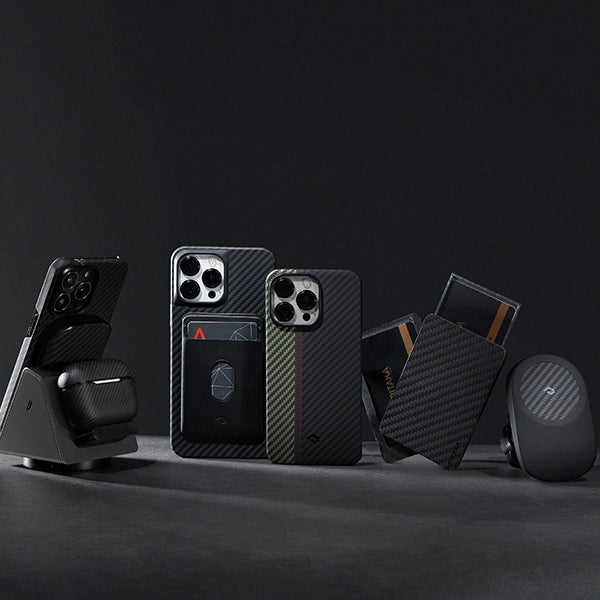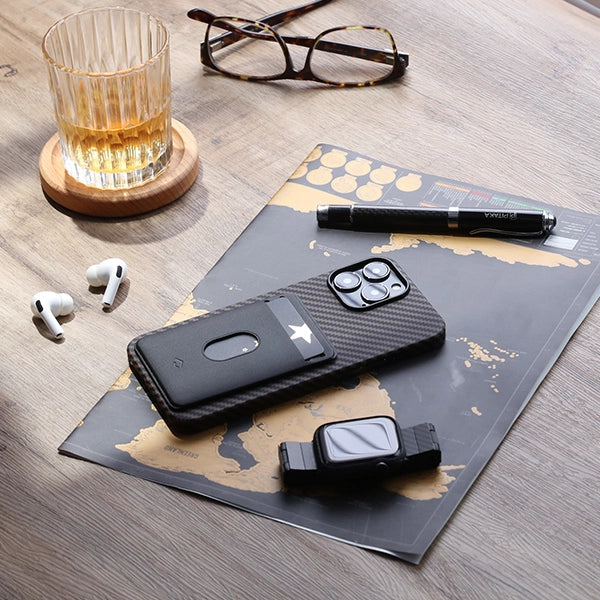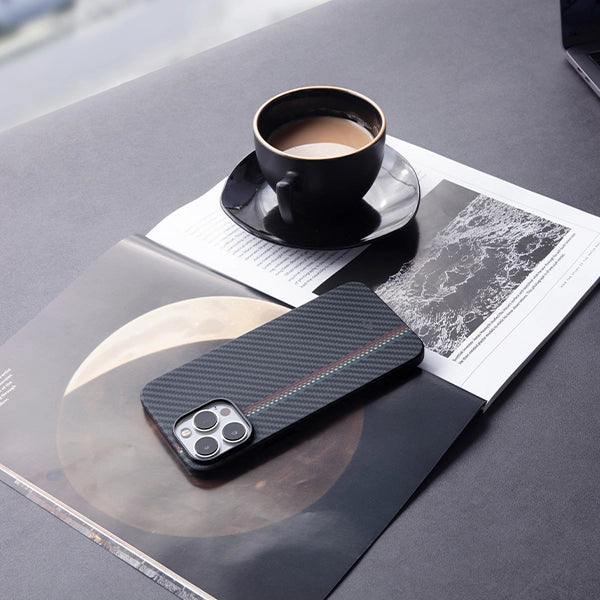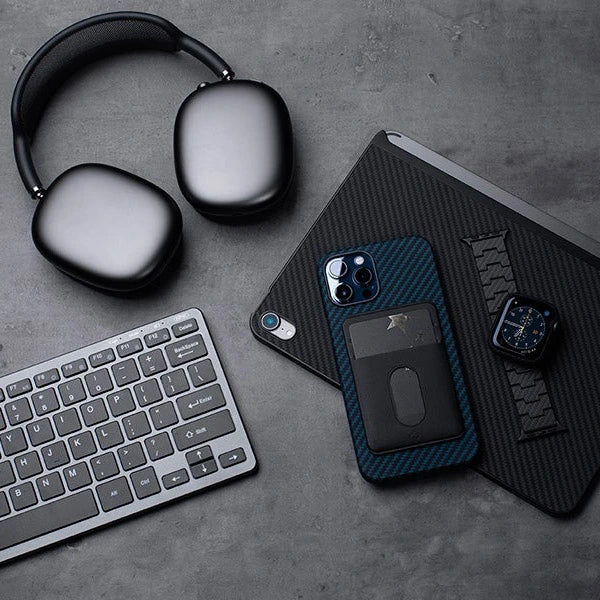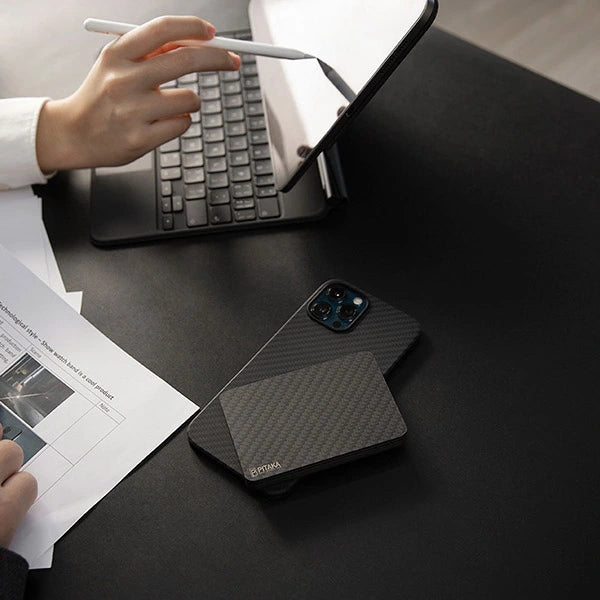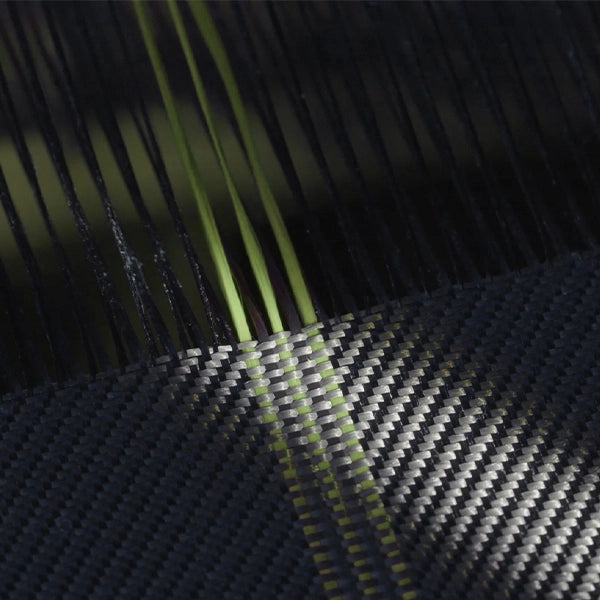
The statement 'AirPower, Apple's wireless charging mat, is almost here', is probably the closest thing we have in terms of a consensus if we were to guess when the AirPower will actually arrive.
It should, therefore, come as no surprise that Apple is dominating the market when it comes to product releases and announcements, even if it has been almost a year since it's announced the AirPower at last September's iPhone X press conference. Amazingly, the AirPower has been trending a lot on the Internet recently, lots of discussing what this mythical charger might be, even if it is still missing in action since the original release date came and went.
Nevertheless, I bet you are still wondering why AirPower is taking so long to make it out into the open and what will happen to it if it's launched this September, as are many others out there.
So let's take a closer look at some of the reasons why it is still hasn't made it off of the starting blocks and whether or not it's still worth buying.
1. What has happened to the AirPower since it was revealed to the world?
The AirPower charger launch has been unusually prolonged since it was announced back in September 2017, which has given Apple fans plenty of time to spread the word and persuade many people that they want it, no, they need it, even if they are not sure what it is actually like. But seriously though, one year is way too long to have to wait for a product after it has been announced. What is not so well known, is that Apple had been planning for a June launch for the AirPower, but unforeseen technical hurdles got in the way.
1) The difficulty of dealing with complex hardware
For us consumers, it's exciting news to see the technologically advanced wireless charger, while for Apple's engineers, it's been quite a headache.
One of the biggest technical challenges was how to support up to three devices being placed anywhere on the pad. In a recent interview, "the multi-device charging mechanism is challenging to build because it likely requires differently sized charging components for the three types of devices, which would all overlap across the mat." sources told Bloomberg.
But why does charging different devices make it more difficult? OK, have a look at the receiver coil inside the iPhone X below.

As you might be aware, wireless charging works when there is 1 transmitter coil in the wireless charger and 1 receiver coil in your smartphone. Now, if you want to place the three devices anywhere on the pad and have them charge reliably, multiple transmitter coils must be placed inside the charger to accommodate every possible position.
Something very similar to this is required:

Picture credits to chongdiantou
As reported by Chongdiantou, the AirPower pad contains 22 individual wireless charging coils, each of which can be independently controlled to supply power to the required device, especially the Apple Watch, regardless of where it's placed on the charging mat. Besides, each coil is tiled to avoid overlapping, and each coil is precisely controlled via smart chip technology.
Comparing this to other, lesser chargers out there, where pretty much every other manufacturer out there just has to deal with perhaps 1 or 2 coils, imagine the complexities involved in dealing with 22 coils.
2) The overheating problems
As you might already know, one of the key limitations that prevents wireless charging technology from taking the place of cable charging is 'slow charging speed,' caused by the heat, resulting in wasted current during the power transmission.

Why is this? Well, just as a CPU will slow down its frequency due to excessive temperature buildup when the temperature of the wireless charger reaches a certain value; the charger will automatically reduce its output power and reduce the charging efficiency accordingly.
At present, many wireless chargers that support Apple's 7.5w fast charge have built-in cooling fans to reduce the impact of heat on the charging efficiency, even so, it's still very difficult to control this heat, even more so for the AirPower.
3) Other problems
In addition to the simultaneous charging of multiple devices and increased freedom of charging, the AirPower also packs a custom Apple chip that runs a "stripped down version" of iOS, which is responsible for on-device power management and device pairing, which requires more time to handle things.

There's also the problem with the design of the Apple Watch Series. Apple Watch has a convex back which means that it doesn't sit on flat chargers very well, this may stop the Watch from being charged effectively on the flat AirPower mat.
By now you can see quite a few reasons why the Airpower has been delayed. Like many others have said, Apple should not have announced it so early when they weren't ready for it.
Personally, I do believe that they will make it 'someday'; but right now, it's a matter of time. For me, one of the big questions is, will they be able to release it this September, who knows? They have postponed the release date this long, so how much longer do we have to wait?
Ok, assuming that Apple solves all the above problems, what are the benefits and what else do we need to know before buying one?
2. If it's launched, what should we consider before buying one?
OK, so this might be somewhat presumptuous, but assuming that it is announced during this year's (2018) Apple Event, what will drive some to buy it and what will make some wait or even not bother?
A) The features of the AirPower that could make you get one.
a. Charge multiple devices all at the same time
This is one of the AirPower's biggest highlights. It's Apple's first wireless charger that "offers a generous active charging area that will allow iPhone 8, iPhone 8 Plus or iPhone X customers to simultaneously charge up to three devices, including Apple Watch Series 3 and a new optional wireless charging case for AirPods."

Picture this: At one end of the table is an Apple AirPower and at the other end, several cables and charging adapters for each one of your devices being placed on the table, what do you choose? It should be come as no surprise that the AirPower enables you to bypass the tangled mess of cables, especially when you realize that there is only one mains power socket and you need three.
b. Place the three devices anywhere on the pad
Aside from the heating problems typically associated with wireless chargers, you might have experienced the situation where you put your phone on the charging pad before you go to sleep, only to find next morning that the battery didn't charge properly. Most likely due to the phone not being fully aligned in the first place. The AirPower charging mat has 22 charging coils which should solve this problem, although it might still suffer from this a little.
c. Automatically identify the types of device
From a personal perspective, I would always go for Apple if I had to choose between Samsung and Apple, as the IOS system is better engineered, extremely robust and reliable. And now they will introduce a "stripped down version" of iOS to control the AirPower. This means that the AirPower will be able to identify each device itself and provide the correct charging characteristics according to the device.
B) Factors that might make you think twice about buying an AirPower
Alright, you might be surprised to know that the AirPower has a few potential flaws that might stop you from buying one. So, read on and see if these are 'no-go' things as far as you're concerned.
a. It could have been designed better
Undoubtedly, the AirPower has a competitive advantage when it comes to the design; it's very clean and simple. However, like other common wireless chargers out there, Apple did not consider every use case scenario, and some are very typical of how we charge our devices:

- What if you have to use your phone whilst charging it?
- What if you accidentally knock the table that the AirPower is sitting on and the phone stops charging?
- What if you need to charge your phone and there's no electricity socket near?
- Not all watchstraps are equal: Some of the straps can be a problem, take the stainless steel bracelet, for example, it's expensive and can only be placed on a cylinder style charger, it can't lie flat.
b. The price will be higher than any other

You've probably already guessed this: the cost for AirPower won't be low if you look at how Apple prices its other products. According to the rumor mill, the launch price will be approximately $150, which is quite a high price for a wireless charger – but then again, this is Apple.
3. AirPower is the best?
OK, it's true that Apple has brought us a bunch of exceptionally reliable tech over the years, but does that mean that the AirPower will be the best and future proofed wireless charger available?
Well, before answering that, maybe you should take a look at PITAKA Air Omni, the ultimate charger for Apple users.
The Air Omni is a compact wireless charging station packed with charging capabilities, and even more powerful than the AirPower.
6-IN-1 WIRELESS CHARGER
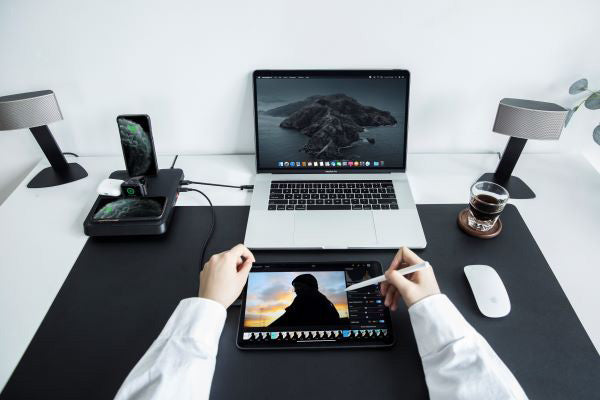
The Air Omni features two Qi wireless chargers, an Apple Watch wireless charger, and a quick-switch connector that changes between Lightning and USB C instantly. This allows you to charge your iPhone, iPad, iPad Pro, Android phone, and even a Nintendo Switch using the Air Omni. Two additional USB ports allow you to charge other devices through USB cables.
POSITION-FREE CHARGING
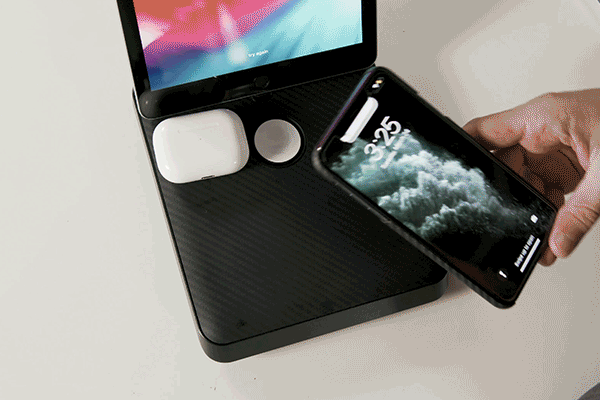
Just like the AirPower project hoped to achieve, you can charge your devices on the Air Omni wireless charging mat no matter how you place them. This is thanks to PITAKA’s Chain-Coil design, which includes three overlapping charging coils that allows you to charge your device in any position without heat build up.
ZINC ALLOY TO DISSIPATE HEAT

As mentioned above, one of the primary reasons that the AirPower charging mat wasn't able to make it to market was that it wasn't able to properly dissipate heat, making it unsafe and inefficient.
The Air Omni has overcome this challenge by not only using a zinc alloy, which efficiently dissipates heat, but also through the Chain-Coil design of the Qi charging coils.
ELEGANT DESIGN
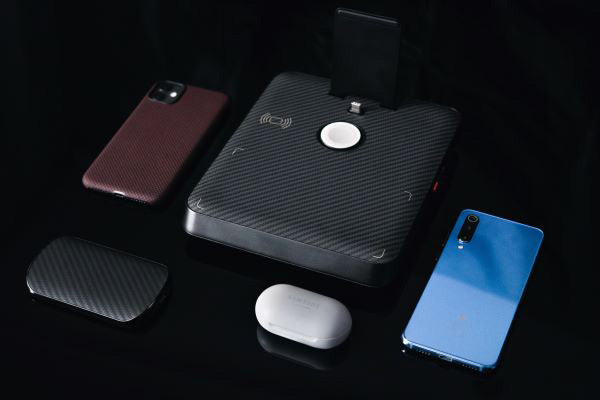
Last but certainly not least, the Air Omni is made from high-quality materials, such as Aramid Fiber. Aramid is used in the motor-racing and aerospace industries as well as in all of PITAKA's products.
The Wait For AirPower
It's still unclear if AirPower is ever going to see the light of day. For those who need a multi-device charging station that not only charges all of your wireless devices, but your wired ones as well, there's no better option than the Air Omni 6-in-1 wireless charging station.
